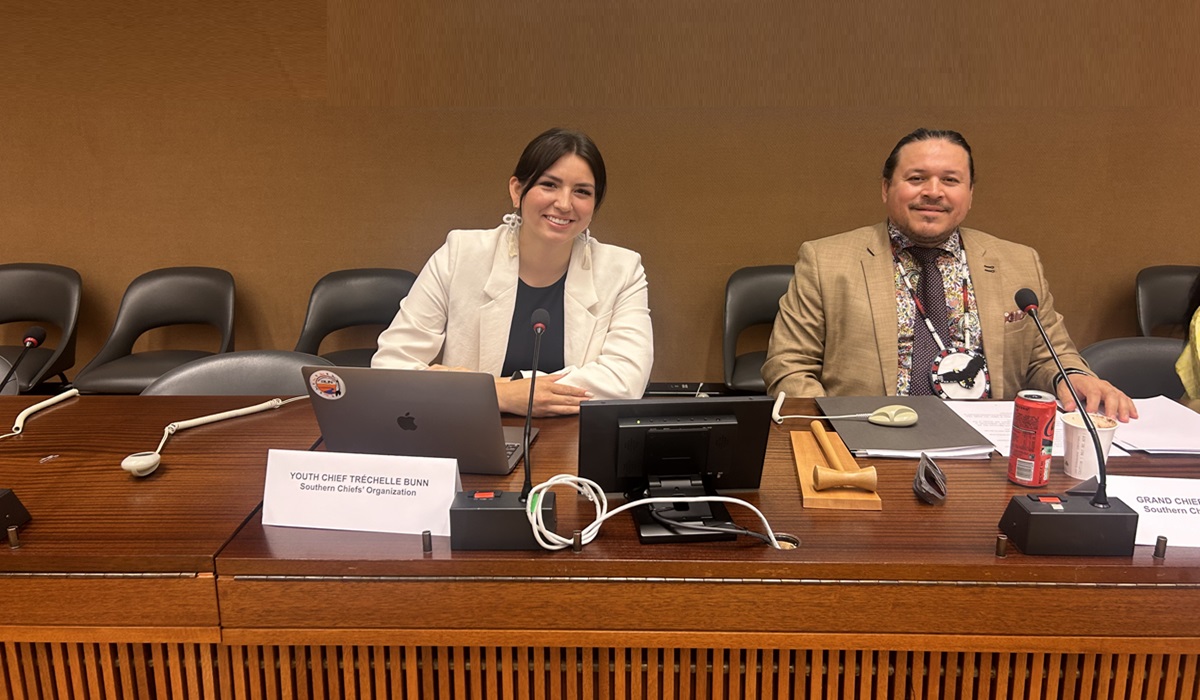SCO Unveils Groundbreaking Report on First Nations Health Care Reform
- Ingrid Jones
- Indigenous
- Trending
- July 10, 2024

“This report provides a blueprint for delivering health care for our people, our way.” – Grand Chief Jerry Daniels
Anishinaabe and Dakota Territory, MB – The Southern Chiefs’ Organization (SCO) has made a pivotal announcement with the release of a transformative report that envisions a path toward genuine self-determination and sovereignty in First Nations health care.
Titled “Decolonization: Recognizing First Nations Sovereignty”, this report is SCO’s proactive response to the Canadian government’s call for the co-development of distinctions-based Indigenous health legislation aimed at addressing health inequities between Indigenous and non-Indigenous populations. The document outlines necessary legal and policy frameworks to dismantle these inequities and advocates for the decolonization of healthcare systems through collaborative legislation with federal, provincial, and other Treaty partners.
Grand Chief Jerry Daniels emphasized the importance of the report, calling it a significant stride toward legislative reconciliation in health care. “I want to acknowledge and commend SCO’s Health Transformation Team for preparing this crucial report for the global audience,” Daniels stated.
Unveiled at the 17th session of the Expert Mechanism on the Rights of Indigenous Peoples at the United Nations in Geneva, Switzerland, the report now stands as an international testament to SCO’s leadership in health care transformation.
The report critically examines how existing healthcare systems have perpetuated the marginalization of First Nations citizens through institutionalized practices. It presents a decolonization model that calls for Canada to relinquish its unilateral control over First Nations lands, systems, and structures. This shift will empower each member Nation to manage its health systems and address the colonial determinants of health, such as poverty, with holistic, culturally relevant solutions.
Chief Kurvis Anderson of the Pinaymootang First Nation highlighted the urgency of these reforms. “The most detrimental determinants of health for First Nations citizens stem from the effects of colonization. We cannot delay any longer in implementing a system that truly supports the health and wellness of our people.”
The report underscores the necessity for First Nations to have authority over all determinants of health, including housing, the economy, environment, culture, and healthcare delivery. It calls for shared control on traditional territories and sole control within First Nations. Additionally, it demands Canada recognize First Nations’ rights to land and resources to adequately fund their health programs, paralleling how Canada utilizes land wealth for its services.
Karlene Debance, CEO of SCO Health Transformation, expressed optimism about the report’s potential to foster collaboration across all government levels. “Guided by Anishinaabe and Dakota principles, I am hopeful this report will lead to a new health care model where First Nations leadership and professionals have increased self-governance.”
Grand Chief Daniels concluded with a vision for the future: “This report, along with insights from community engagement sessions, clearly shows that SCO member Nations are ready to reclaim control over their health systems. We will no longer be invisible in our own lands and territories. I am eager to see the progress as we develop health care on our own terms.”
The comprehensive report, “Decolonization: Recognizing First Nations Sovereignty 2024,” along with other Health Transformation initiatives, can be accessed in full at SCO Health Transformation.








